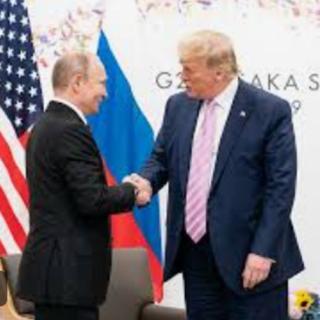With groups of young people taking over downtown Columbus, the George Floyd protests are unique in how decentralized their organization has been and how social media was used to coordinate thousands to converge on downtown.
Many groups have shared the mic and they have similar goals to completely restructure the concept of policing.
But this decentralized movement – a fundamental strategy for today’s protesters – has led some local protesters to separate themselves from others so to promote what some believe are “softened” demands to city government and Columbus police.
At warp speed many protesters soon felt they were being led by people they have never met, who are spreading a message many protesters don’t agree with.
How did the Columbus protests become co-opted by group(s) who don’t share the same vision and goals as the majority of protesters? And just exactly who are some of these group(s) who seemingly materialized out of clouds of tear gas?
These questions, these concerns, spread fast through the activist community Monday night after local mainstream media (such as WBNS Channel 10) aired a story showing members of a new group called "Black Freedom" speaking with Deputy Chief Jennifer Knight outside police headquarters.
The Free Press reached out to Black Freedom, but have received no response yet.
By all accounts Black Freedom was initiated not long after protests erupted in tear gas that escalated into looting, and are trying to distinguish themselves from the protesters calling for the defunding of the police.
The 21-year-old leader of Black Freedom, Earl Jones, and others have led protests of thousands in Columbus. Jones has also walked side-by-side with Columbus police commanding officers, which no doubt helped him secure the Monday meeting with Deputy Chief Jennifer Knight. Jones also told local media Black Freedom had “conversations” with police for several days prior.
Which raises another question: Was this televised conversation between Black Freedom and police commanding officers initiated by Columbus police and the city?
“We’re going to do it the right way. We’re not going to be radical, we’re not going to make those overzealous demands,” Jones told the crowd that had gathered around him and Chief Knight. “We can’t worry about the world, we’re working on Columbus, Ohio.”
Jones’ message, believe many activists, drastically softened their calls to ‘abolish the police’ and changed demands more akin to ‘we want an increase in cultural competency training.’
Indeed, Black Freedom offered these ideas to police: 30 percent of Columbus police should be black, police should live in the communities they are policing, a community oversight board, more social workers on the force.
“I think it's a beautiful thing that we are actually able to sit down with police who are ready to listen to the demands of the people and actually begin the collaborations because we understand as an organization that it’s going to hurt to work within a system that hasn’t always represented a large very important part of the American community, but we see that the best way to make sure that change happens is to meet with them,” former Black Freedom spokesperson Daniel Crumpler told Channel 10.
He added, Black Freedom “is open to everybody who shares the same message of peace and progressive change and we need every voice to be heard, not any color, any race, gender or anything like that every voice does need to be heard in this, we all need to be together.” Crumpler has since resigned from the Black Freedom group.
The Black Freedom Facebook page is overwhelmed with posts asking for clear statements of intent and unity from other organizers. But Black Freedom has been reticent towards working with other organizations.
Jones is also being questioned about photos of him regarding his apparent enlistment with the US Army. Many activists simply want transparency, collaboration, and are willing to listen to what Black Freedom has to say.
This reporter spoke with a former member of the group, who prefers to remain anonymous. He claims to have been kicked out of Black Freedom because his calls for police reform were too radical.
He says the meetings he was involved with went from demanding demilitarization of the police, to quickly turning to who their leadership should be and to how to file for an LLC.
Radical ideas such as defunding police eventually retreated to their mentioned policies of community oversight, police residency in the community, and diversifying the police force, said the anonymous source. He added it seemed as if Black Freedom would be happy with “tiny concessions.”
Some Columbus activists began suggesting online Black Freedom may not be who they claim to be. Afterall, the US has a history of stifling movements through shady methods.
From 1956 to 1971 the FBI conducted illegal projects under COINTELPRO (Counterintelligence Program). They sought to undermine and dismantle different political organizations that were almost exclusively left-leaning movements like the Black Panther Party, feminist organizations, anti-war protestors, the Communist Party USA, civil rights activists (MLK was targeted), and many more New-Left movements.
These methods ranged from spreading false information, to sponsoring right-wing militias and ordering assassinations
The FBI ordered a letter be sent to tabloids claiming actressJean Seberg, who supported the Black Panther Party, was pregnant from a BPP member instead of her husband.
The FBI also sponsored the San Diego paramilitary organization called the ‘Secret Army Organization’ in 1971 (formally the ‘Minutemen’) who would go on to bomb a movie theater, burglarize anti-war protestors homes, and under the FBI instructions, plot assassinations against a teacher at San Diego State University and a local organizer (thankfully neither were carried out).
But as Monday’s televised interview between Black Freedom and Columbus Police commanding officers came under more scrutiny, the rumors that Black Freedom are incognito police or undercover subsided.
However, activists remain concerned over what influence Black Freedom will have, if any, over Columbus police reforms.
“They are being used by the police to create division,” said one local Columbus activist who also wished to remain anonymous. “Lots of pics of them hugging cops. But they are not undercovers.”
Twenty-something Taylor Dorrell is a Columbus-based photographer and writer who was attending college in Cincinnati when University of Cincinnati officer Ray Tensing murdered Sam DeBose, which prompted Dorrell to become active in Black Lives Matter.



